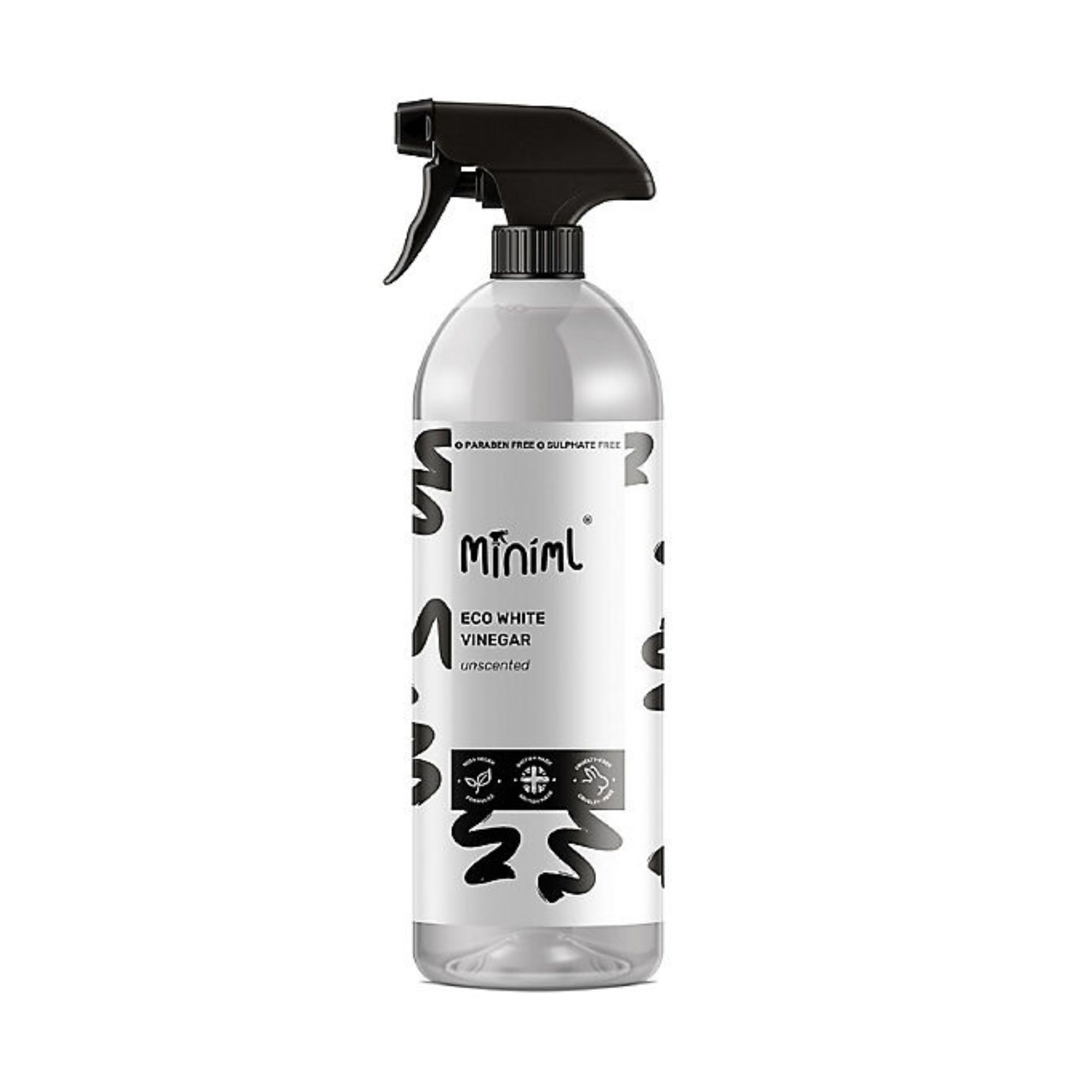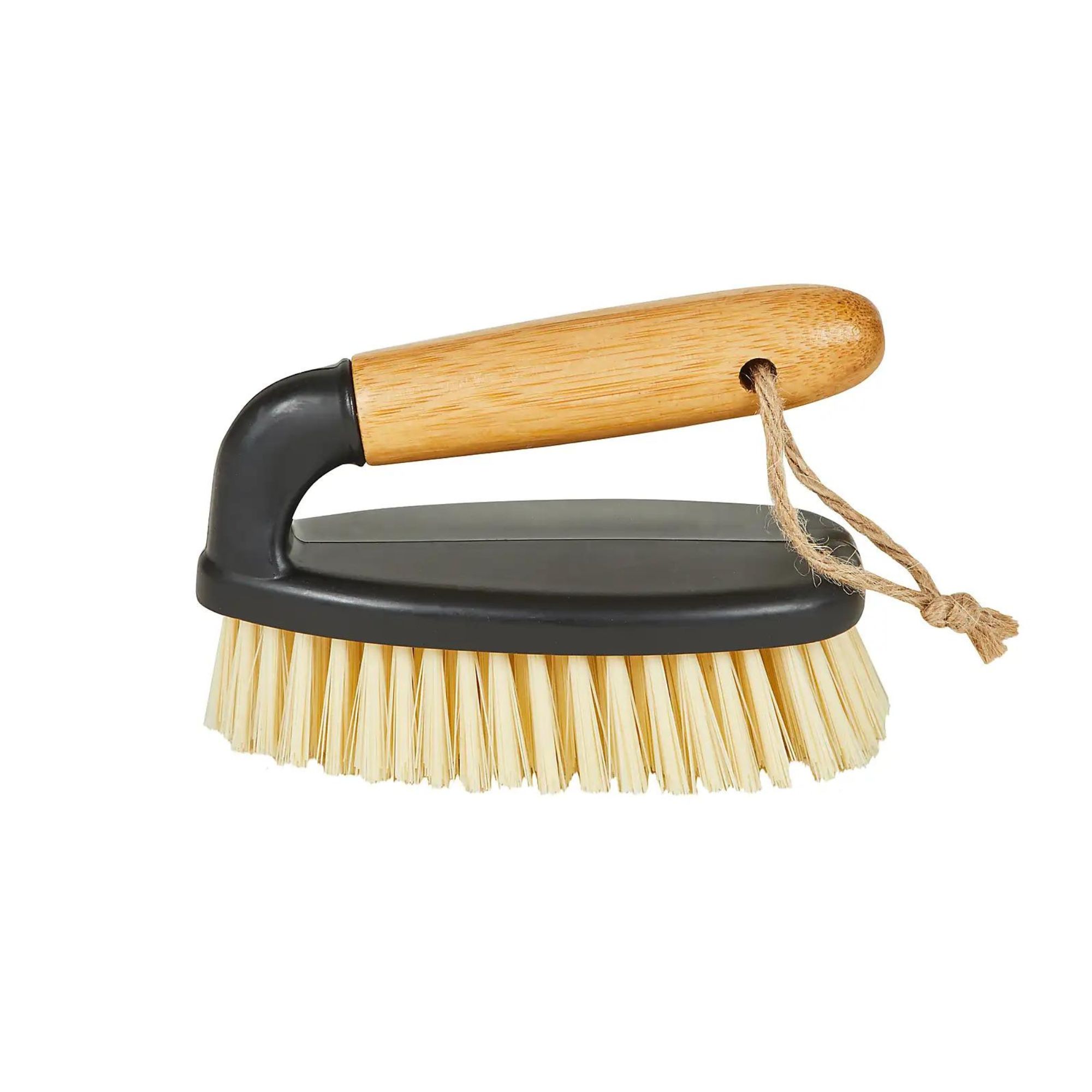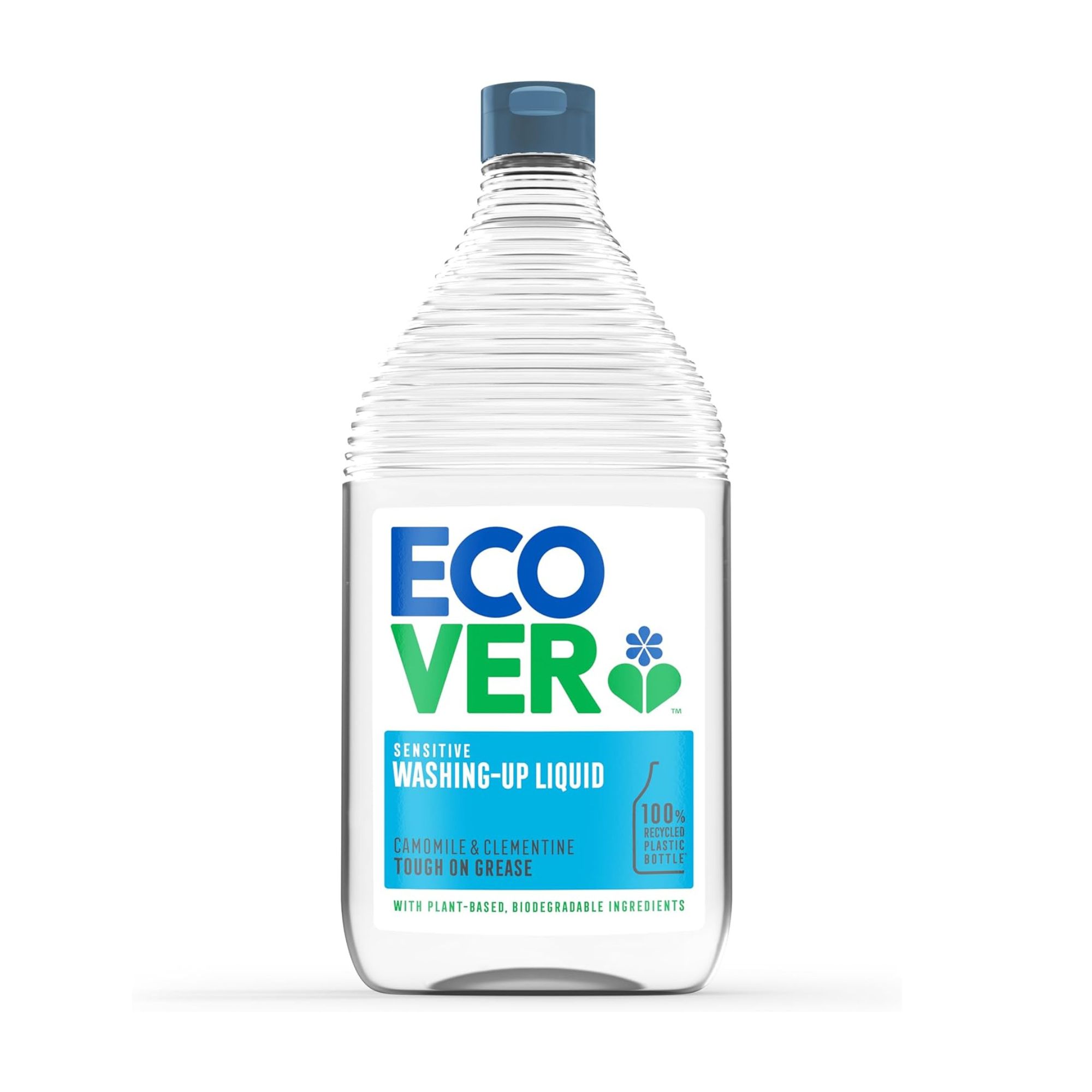How to clean garden furniture cushions - the three things you need to make them look like new again
You only need three products to bring your cushions back to life
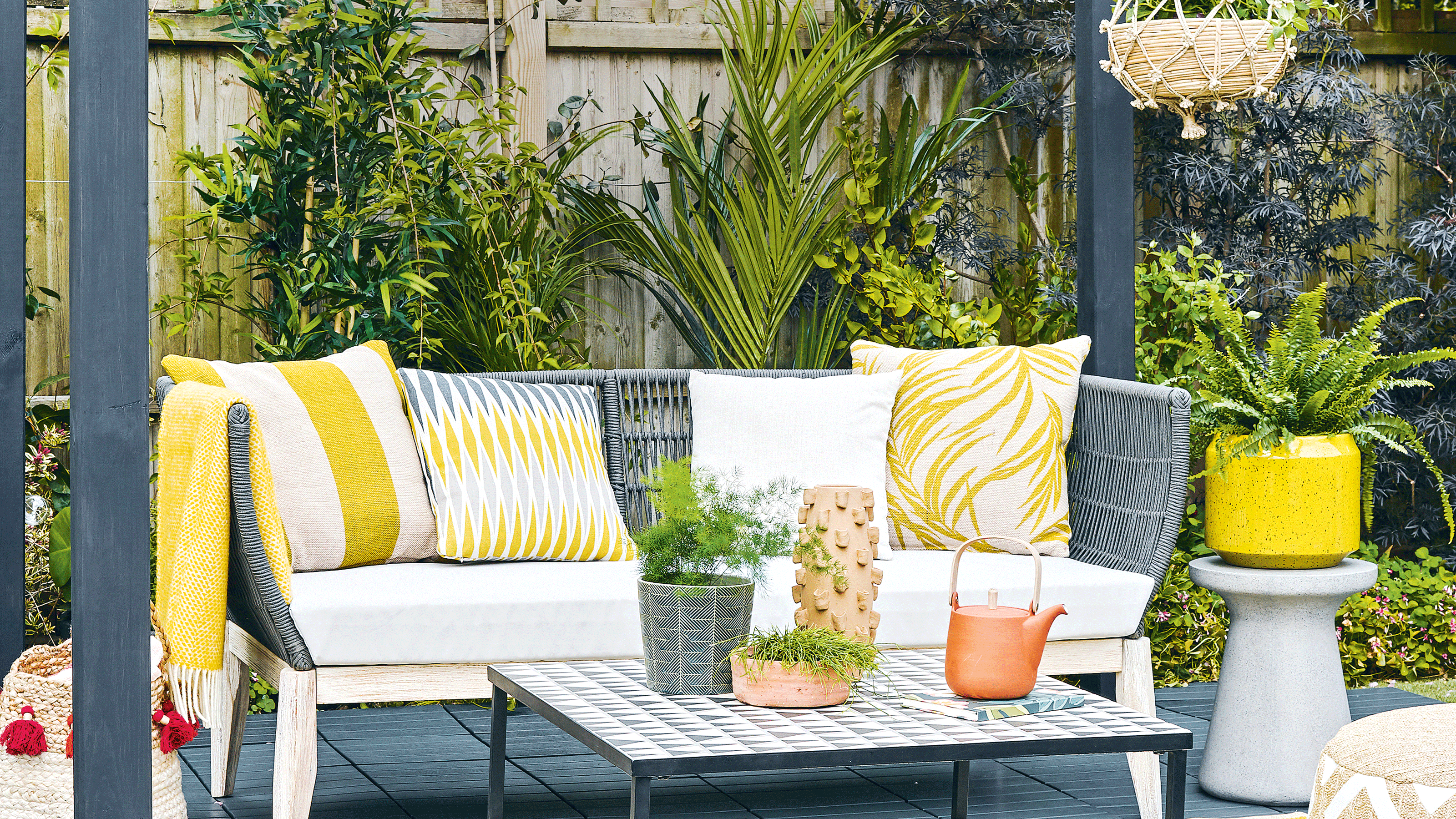

Your garden furniture cushions are constantly exposed to dirt and debris, from food stains to bird droppings and even rainwater. But if you want to make these cushions look as good as new, you need to know exactly how to clean garden furniture cushions.
After all, the best garden furniture wouldn’t be complete without cushions. No matter whether you want to add an extra layer of comfort to your best wooden garden furniture or add some colour and pattern to the best rattan furniture, these cushions add both practicality and style to your outside seating area - but only if you keep them clean.
We’ve consulted garden furniture experts to help you nail this task, and you’ll be happy to know that it’s easier than you think. All you need are three common household products and a sunny day to get the job done.
How to clean garden furniture cushions
‘There are several things that could make stains on outdoor furniture cushions, from SPF to food and bird droppings. But it's important not to neglect them just because they're outside,' explains Steve Chilton, garden expert at LeisureBench So, follow the steps below to learn how to clean garden furniture cushions.
What you’ll need
Step-by-step
1. Check the label
Just as you should always clean your garden furniture, you should also clean your garden furniture cushions. To do this, you have two options: You could clean them by hand or in the washing machine. However, some garden furniture cushions can’t be machine-washed.
Steve explains, ‘First of all, if your garden furniture cushion covers can be removed and put in the washing machine, then make sure you do this. Follow the washing instructions, and make sure that you leave the covers out to completely dry before you put them back on.’
Even if your garden furniture cushions are removable, it’s still a good idea to double-check the label to make sure you’re choosing the right option. This also applies to the best outdoor cushions, too.
And if they're not removable, simply move on to the next step.
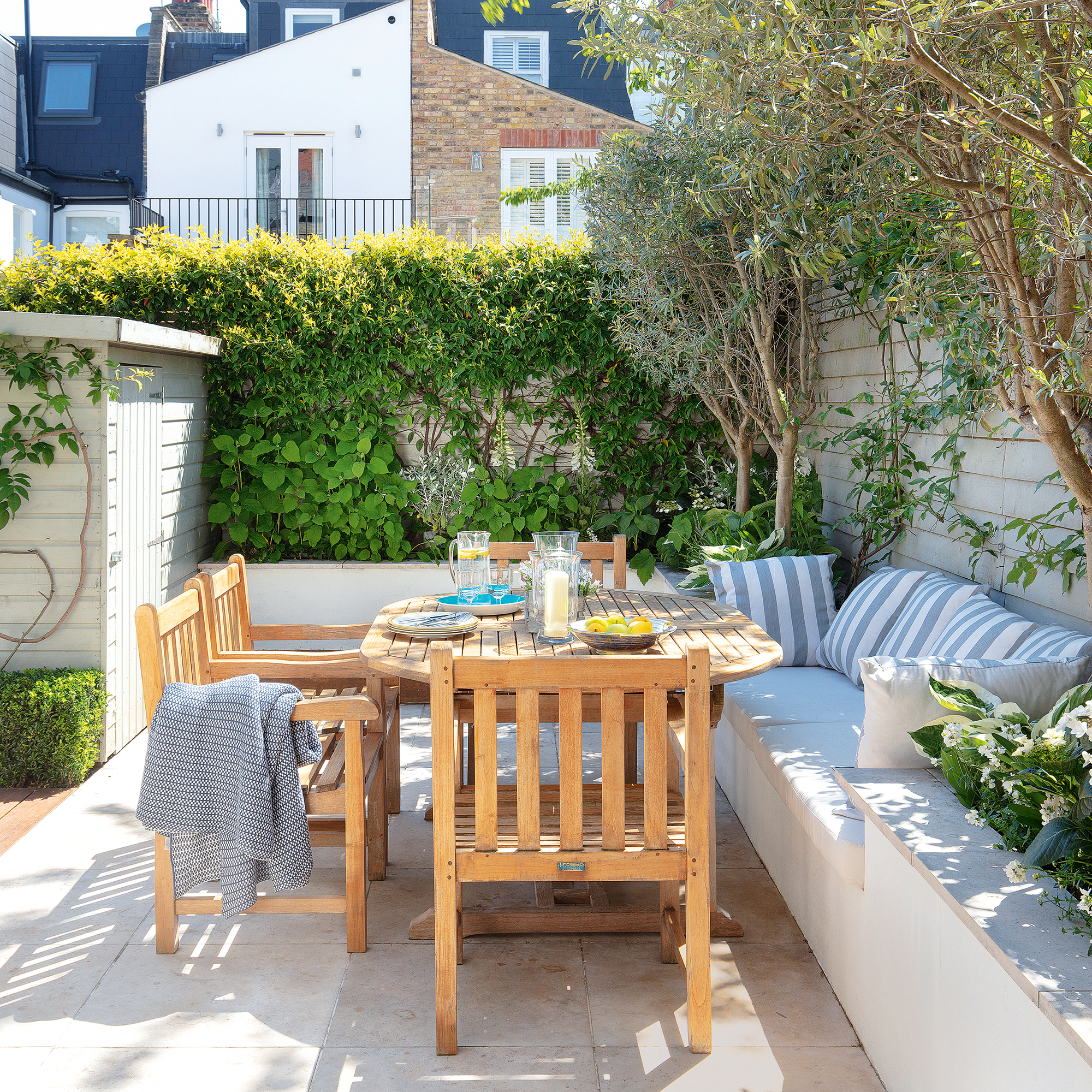
2. Scrub with a natural cleaning solution
At Ideal Home, we always prefer to use a natural cleaning solution over a chemical cleaner. And, thankfully, cleaning with vinegar is the best option when cleaning garden furniture cushions.
In fact, the most effective cleaning solution is a mixture of warm water, washing-up liquid, and around 2 tablespoons of white vinegar.
Then, Steve says, ‘Using a soft cloth or very soft brush, use the mixture on your cushions. You should lightly scrub and ensure that the mixture is covering the whole cushion.’
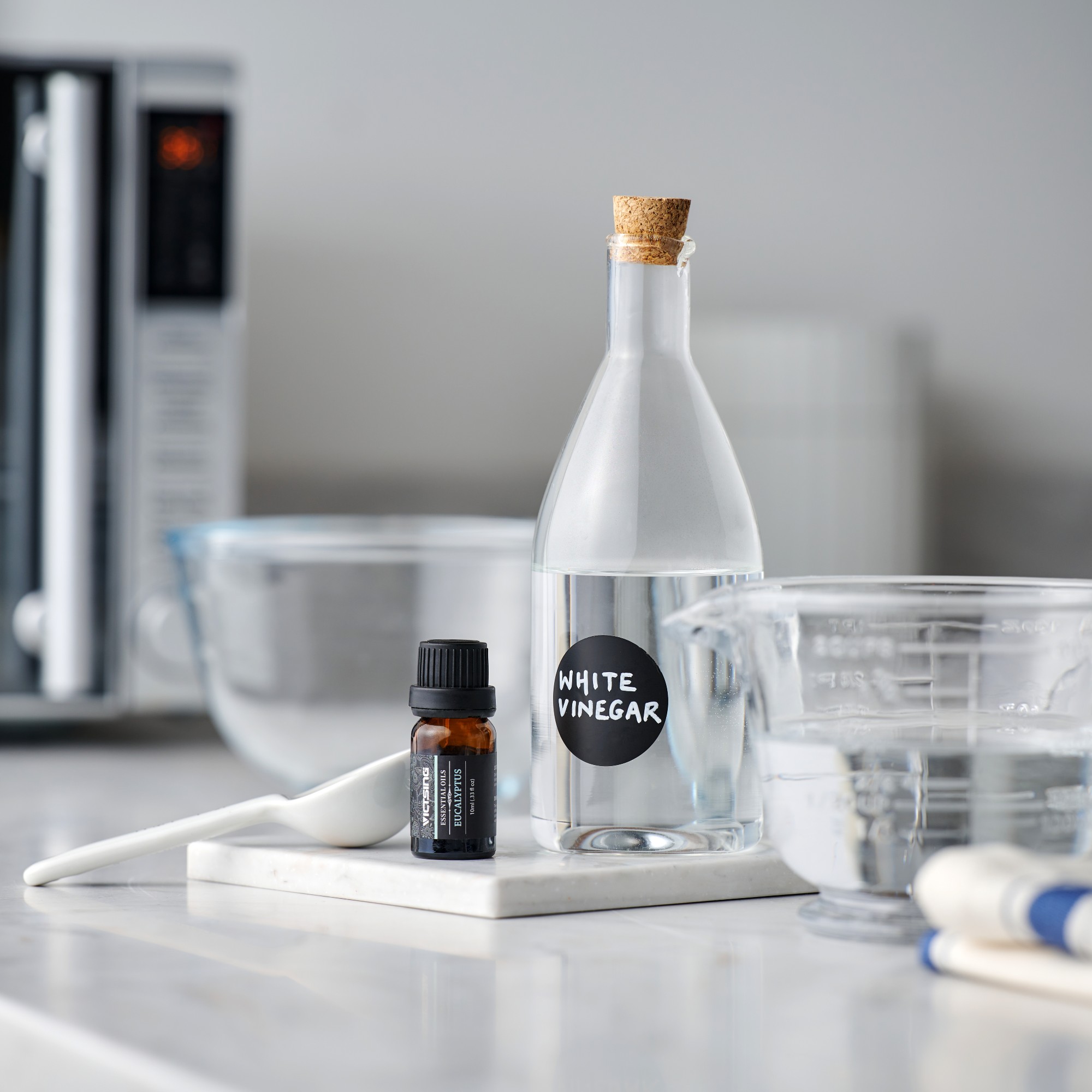
3. Wipe off the cleaning solution
If you have particularly dirty garden furniture cushions or just need a little tea break, you should then let the cleaning solution work its magic for around 15 minutes before wiping it off. This will give the solution enough time to penetrate the material's fibres.
Steve says, ‘Let the mixture sit for around 15 minutes. Rinse off the mixture, making sure every bit is properly removed. Then, let the cushions dry.’
For this step, it’s best to grab a bucket of clean water and place it next to you so you don’t have to keep running back and forth to the kitchen.
4. Tackle any mould spots
If you’re happy with your garden furniture cushions after the first two steps, you can move on to step four. But if you’ve spotted mould on them, you may need to give them some extra TLC.
Caron Grant, Brand Manager at Bridgman, explains, ‘If you do find mould - don't panic. The key to treating mould stains is to clean the cushion as soon as you see the mould forming.’
‘Dilute 1 cup of bleach with ¼ cup of mild soap per 5 litres of water and use a spray bottle to apply the solution to the affected area, allowing it to soak for 15 minutes.’
‘Then, clean the mould off of the cushion with a washing-up brush or nail brush. If there is still some mould remaining, spray the cushion with a jet washer - just make sure to vent the cushions if water gets inside.’
If you need some extra help, our guide on how to get mould and mildew out of outdoor cushions can help you out.
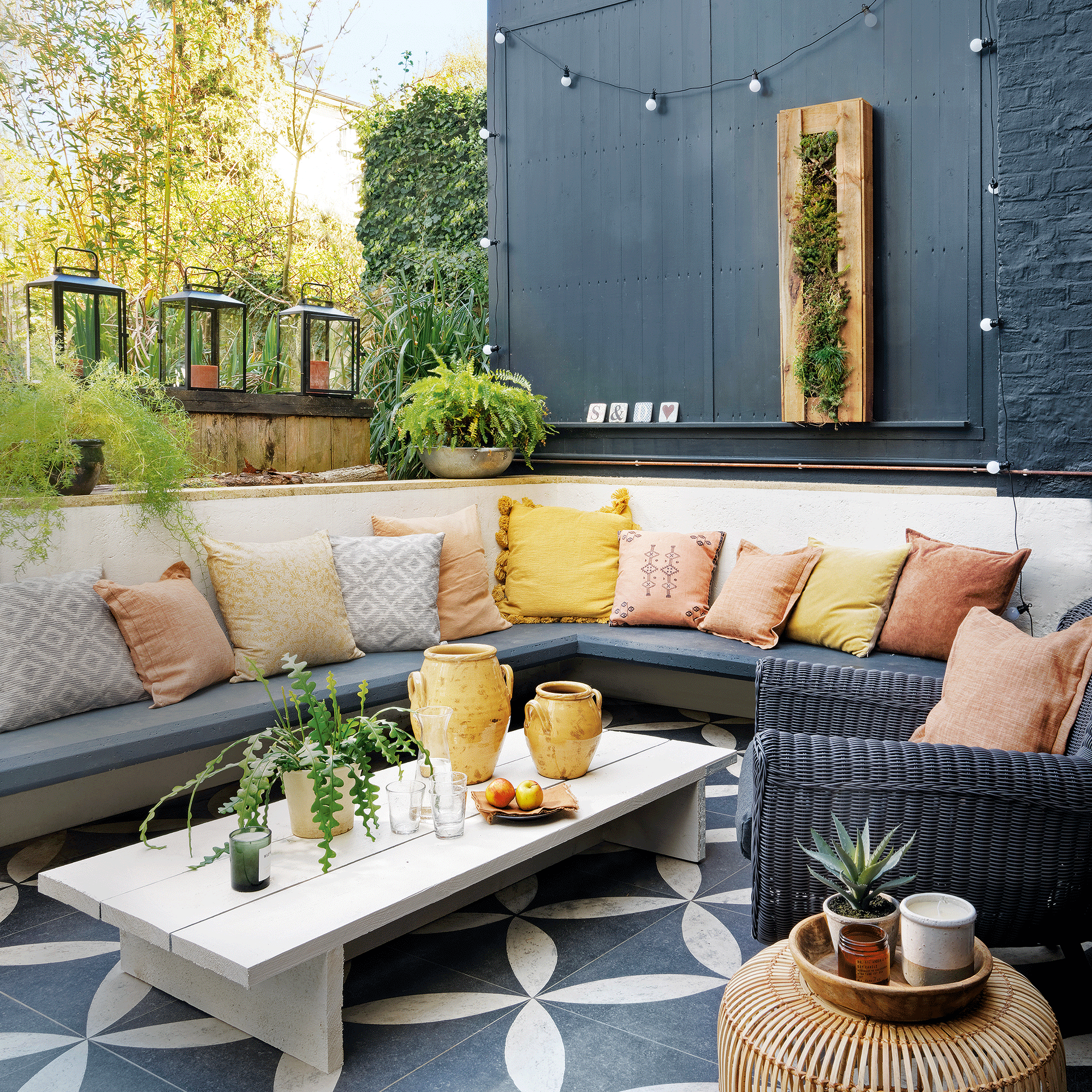
5. Repeat when necessary
When you’ve cleaned your garden furniture cushions for the first time, it’s easy to forget about them for the rest of the year. But most experts suggest cleaning them at least twice a year: before you get them out of the shed in the spring and before you put them away again in late summer or early autumn.
Of course, there are circumstances when you should clean them more than that. Steve says, ‘You should be cleaning the cushions as soon as you notice a stain or mark or just as regularly as you wash your indoor sofa cushions.’
‘Once a week or once every two weeks, it's a good idea to dust any outdoor cushions just to prevent dirt from sitting too long.’
If you have larger crumbs and debris to deal with, you could also use one of the best vacuum cleaners every couple of weeks.
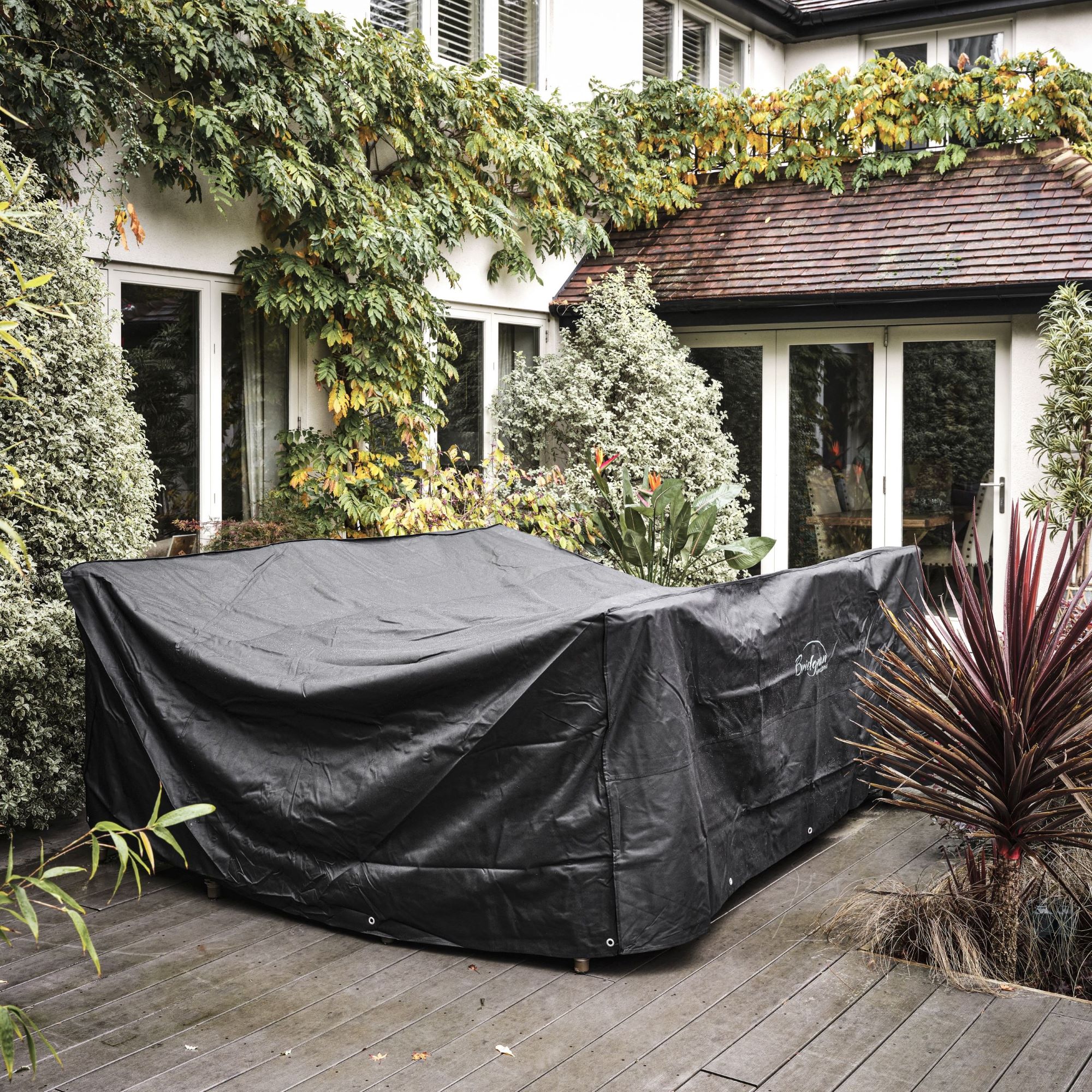
6. Consider a furniture cover
If you want to avoid cleaning your garden furniture cushions too often, most experts would suggest investing in an outdoor furniture cover. This way, you can cover up the furniture (and the cushions) when you’re not using it and keep weather-based stains at bay.
Caron explains, ‘Outdoor furniture covers are as essential as any piece of garden furniture or outdoor accessory. When you buy your outdoor furniture, you are investing in pieces that you and your loved ones will enjoy season after season - so it is absolutely essential to protect your investment.’
‘We recommend purchasing covers to keep your set looking its best aesthetically, if not for protection against the elements themselves. Then, as soon as the sun begins to shine, you can simply remove your covers and relax on your furniture, free from the hassle of cleaning up muck and mess that may have accumulated.
‘Simply ensure that all of your cushions are dry and clean before you store them under a cover to prevent mould from forming.’
FAQs
What is the best way to wash patio furniture cushions?
If your patio furniture cushions are machine-washable, throwing them in the washing machine and letting them dry is the easiest way to clean them. If they’re not, you’ll need to clean by hand - but this is still very easy to do.
All you need to do is scrub a mixture of water, washing-up liquid, and white vinegar into the cushions, rinse with fresh water, and allow them to dry.
If you have any stubborn mould or mildew stains, you may need to use a stronger solution of diluted bleach and water.
How do you get stains out of garden furniture cushions?
White vinegar and water should be enough to get most stains out of garden furniture cushions. If this doesn’t work, however, you may need to use a solution of bleach and water instead.
Can you wash outdoor furniture cushions in the washing machine?
If the covers of your outdoor furniture cushions are removable, you may be able to wash them in the washing machine. It’s always best to double-check the label to ensure this is the best course of action, however.
Sometimes, cleaning outdoor furniture cushions is still the best option, as you can directly tackle any stains that might be on them.
It’s time to get cleaning!
Get the Ideal Home Newsletter
Sign up to our newsletter for style and decor inspiration, house makeovers, project advice and more.

Lauren Bradbury has been the Content Editor for the House Manual section since January 2025 but worked with the team as a freelancer for a year and a half before that. She graduated with a Bachelor’s degree in English and Creative Writing from the University of Chichester in 2016. Then, she dipped her toe into the world of content writing, primarily focusing on home content. After years of agency work, she decided to take the plunge and become a full-time freelancer for online publications, including Real Homes and Ideal Home, before taking on this permanent role. Now, she spends her days searching for the best decluttering and cleaning hacks and creating handy how-to guides for homeowners and renters alike, as well as testing vacuums as part of her role as the Ideal Home Certified Expert in Training on Vacuums, having spent over 110 hours testing different vacuum models to date!
-
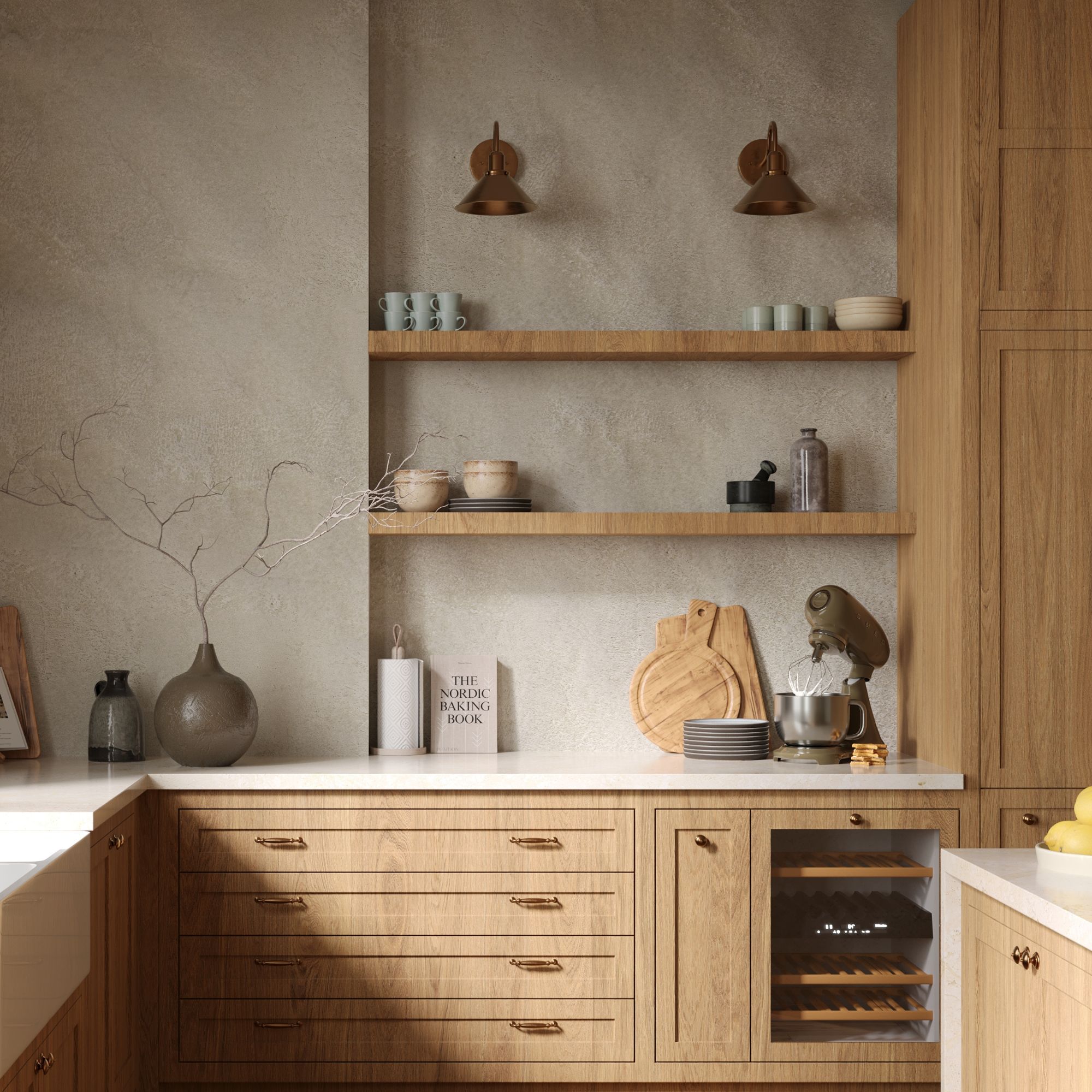 Wood drenching is the calming new twist on the colour drenching trend – here’s how to make the look work in your home
Wood drenching is the calming new twist on the colour drenching trend – here’s how to make the look work in your homeIt’s easier than ever to embrace natural materials
By Maddie Balcombe
-
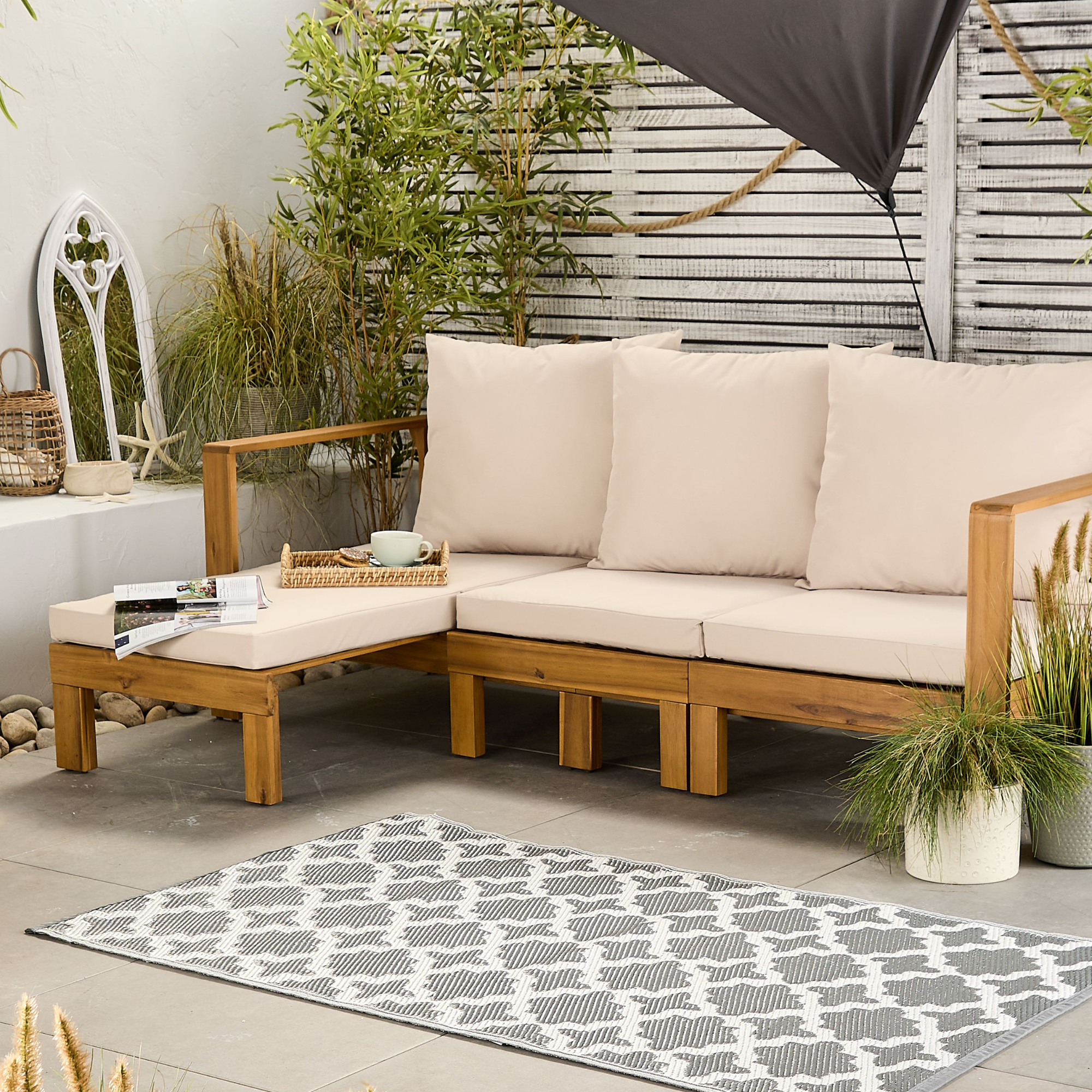 Aldi is launching a £200 day bed with four different features - its sleek design is suited to the whole family
Aldi is launching a £200 day bed with four different features - its sleek design is suited to the whole familyYou don't want to miss out on this Specialbuy
By Kezia Reynolds
-
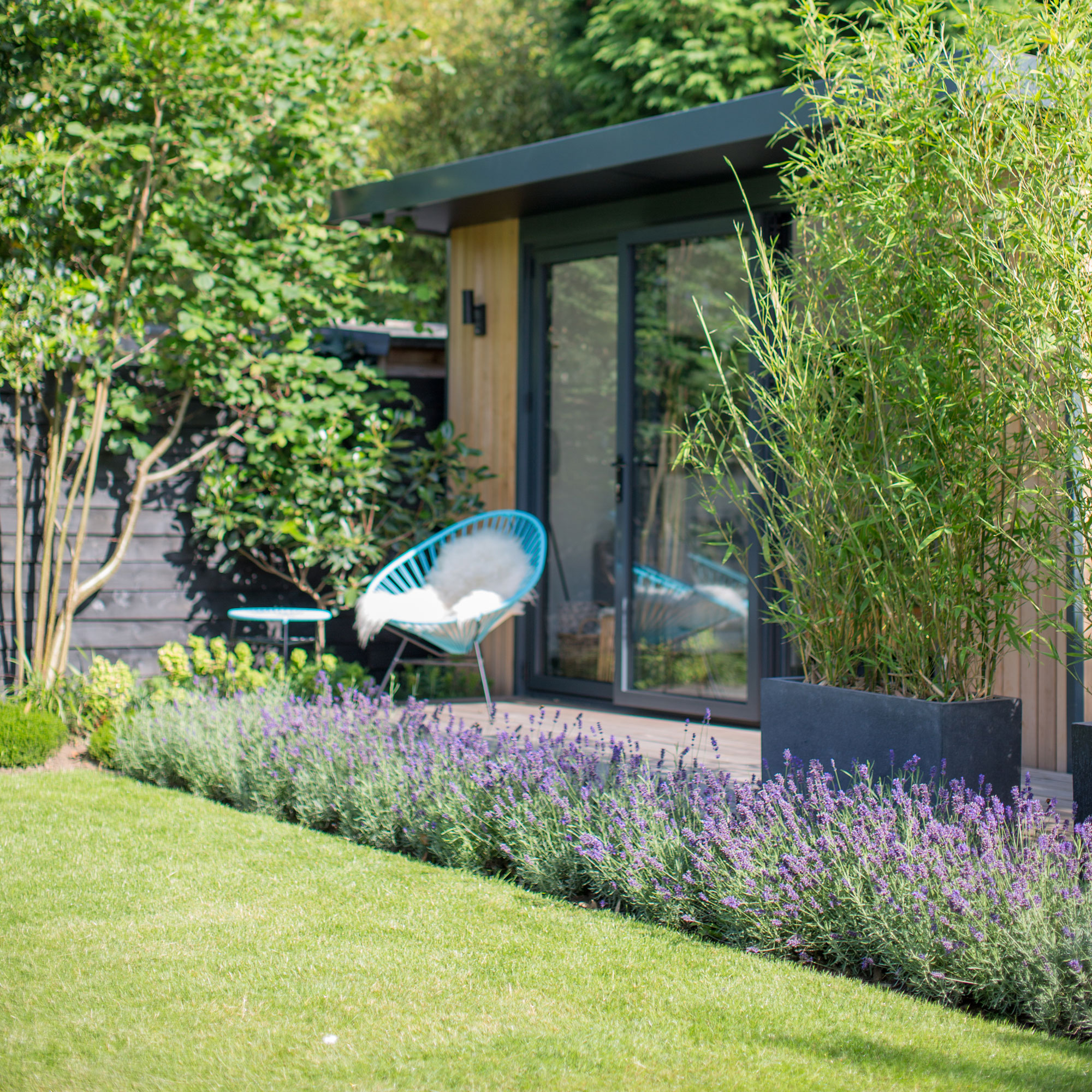 How to set up a drip watering system that saves water and a lot of effort
How to set up a drip watering system that saves water and a lot of effortKeep your plants hydrated (and your water bill down) with this clever garden watering solution
By Natalie Osborn
